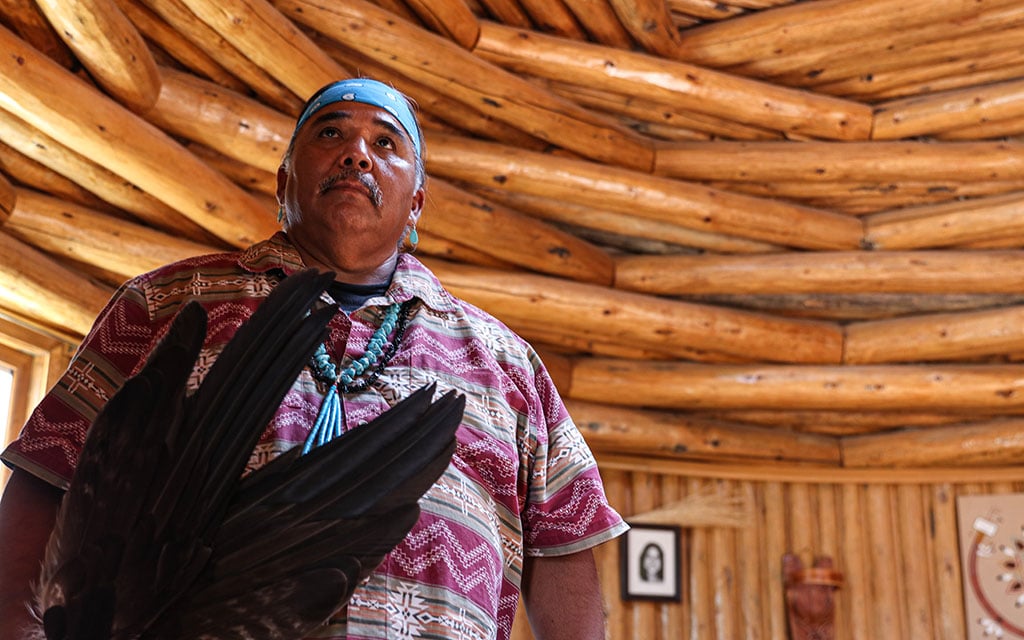Healing Through Culture: Increasing access to Native American practices to treat mental health

Cronkite News, story and video by Laura Bargfeld, audio story by Natalie Skowlund, November 4, 2022: HOUCK – In a remote hogan near the southern edge of the Navajo Nation, Wayne Wilson lights a fire, lays out eagle feathers and remembers his grandfather’s teachings.
“He would talk to me and tell me, ‘Grandson, we’re going to do things here together. We’re going to pray together. We’re going to sing together. And I need you to pay attention as much as you can, because I don’t know how things are going to change.’”
Wilson, like his grandfather before him, is a traditional Navajo healer. He uses herbs, song and ceremony to restore the mental and physical well-being of himself and others, incorporating other practices, such as acupuncture, when needed.
“It all depends on the individual,” he says.
Before embarking on this path, Wilson endured a life filled with trauma. He came from a home rife with alcohol and domestic violence, faced isolation and abuse while attending boarding schools as a boy, and had a complex relationship with alcohol himself.
“One day I’d just had enough,” he recalls. “I just got fed up.”
He made his way to the Native American Baha’i Institute, which integrates Native American spirituality with that of the Baha’i faith. The institute’s hogan, a traditional ceremonial dwelling, is where he embarked on a long journey toward finding a renewed relationship with the healing practices of old.
“Here is where my sobriety started,” Wilson says. “The medicine way started here for me.”
Read, watch, and listen to more from Cronkite News here.




